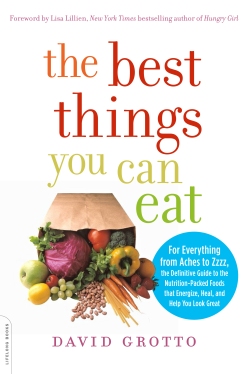Summer offers plenty of tasty fresh fruits and vegetables, but whether it comes from the local farmer’s market, grocer or even your own garden, produce may become contaminated with harmful pathogens that can cause food poisoning. As part of the Home Food Safety program, the Academy of Nutrition and Dietetics and ConAgra Foods reminds Americans to safely enjoy produce with tips for buying, storing and preparing raw produce.
“One in six Americans gets sick every year from foodborne pathogens that you cannot see, smell or taste but are everywhere,” says registered dietitian and Academy spokesperson Sarah Krieger. “Eating any contaminated product – even produce labeled as organic or locally grown – can lead to food poisoning or even death.”
Each year, 3,000 Americans die from food poisoning. In 2011, listeria-contaminated produce caused the deadliest foodborne illness outbreak in nearly 90 years, according to the Centers for Disease Control and Prevention. Harmful foodborne pathogens like E. Coli, salmonella, listeria and norovirus may contaminate fruits and vegetables from the soil or water or during harvesting.
“Fruits and vegetables are an important part of a healthy eating plan, and should fill half of your plate, but just like any food product, extra precautions should be taken to reduce the risk of food poisoning,” Krieger says.
“Avoid produce with mold, bruises or cuts as these are great places for bacteria to hide and spread rapidly to other places of the fruit. Buy loose produce rather than pre-packaged and if you do buy pre-packaged, it doesn’t hurt to wash bagged-lettuce or pre-washed carrots even if the bag claims they are ready to eat.”
According to Krieger, it is imperative to wash fruits and vegetables with cool tap water before eating or serving; dry with a clean cloth or paper towel to eliminate bacteria; and use a knife to cut away any damaged or bruised areas. It is also important to wash produce before peeling to make sure dirt and bacteria aren’t transferred from the knife to your fruits or vegetables.
“Cross-contamination can lead to food poisoning when juices from raw foods like meat, poultry or chicken come in contact with ready-to-eat foods like raw produce,” Krieger says. “Using two cutting boards and a color-code system can help: one color cutting board for raw meats; and the other for your fruits and vegetables.”
Just like any prepared dish, cooked fruits and vegetables can perish and lead to food poisoning upon consuming. Krieger advises discarding cooked vegetables after three to four days and to label leftovers with an “eat-by” date to know when food is no longer safe to eat.
Download the Summer Produce Safety tip sheet, and visit www.homefoodsafety.org for additional safety tips on how to properly store your produce and reduce your risk of food poisoning.
Courtesy of www.eatright.org




